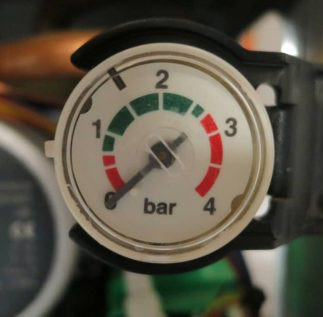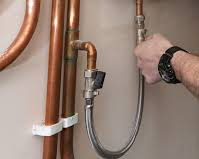Baxi Duotec Boiler Faults: Central Heating Systems in Cyprus
- Steve Holloway

- Aug 7, 2025
- 6 min read
Having recently installed a new boiler, it's understandably frustrating when it isn't functioning properly, especially when it should be providing reliable heating. In this article, we’ll explore your central heating system, which comprises several key components: radiators, piping, electrical controls, the gas supply, and the Baxi boiler itself, which acts as the heart of the system. Understanding how these elements work together can help identify issues and ensure your home stays warm and comfortable.
A brief description of your heating system and working out your baxi duotec boiler faults.
A gas central heating system in Cyprus, primarily hydronic, operates by burning propane in a boiler to heat water that circulates through radiators or underfloor pipes, providing consistent warmth throughout the building. The combustion gases are safely vented outside through a flue or vent pipe, ensuring no harmful emissions accumulate indoors. Equipped with essential safety features such as thermostats, gas detectors, and proper venting, the system delivers efficient, reliable heating while maintaining safety standards and ensuring a comfortable indoor environment.
The Baxi Luna duotec control panel

So what can go wrong?
The boiler is a crucial component of the entire heating system, acting as the control center that manages the operation of the system. If the boiler detects any issues—such as abnormal pressure, temperature fluctuations, or safety concerns—it will automatically shut down to prevent damage or hazards, ensuring both safety and the continued efficient functioning of your central heating. This automatic shutdown feature helps protect your system and maintain a safe, comfortable indoor environment.
Below is a table summary from the Baxi Handbook
Fault Code | Description of Fault | Action |
110 | Boiler over heat / pump failure | Press and hold down R for at least 2 seconds |
117 | High water pressure (>2.7bar) | Call authorised service center |
118 | low water pressure | Check that the pressure in the system is correct: see the FILLING THE SYSTEM section |
128 | No flame | Press and hold down R for at least 2 seconds |
133 | Ignition failure | Press and hold down R for at least 2 seconds |
160 | fan failure | Call authorised service center |
What does this all mean and is there anything you can do to personally get things going again so lets take a closer look.
These are the most common faults
Fault 118
This fault typically occurs when the system's water pressure drops too low, so it's important to know how to correctly fill the system to the proper pressure—ideally around 1.5 bar, as indicated by the needle on the boiler's pressure gauge within the green wedge range. While it doesn't need to be perfectly precise, maintaining the pressure close to this level is essential. Hopefully, your engineer has shown you how to do this. Once the water pressure is restored to the correct level, the fault will automatically reset, allowing your system to operate normally again.
Fault 117
This fault indicates that there is excessive water in the system, possibly because the main filling valve has been left open. To resolve this, you'll need to release some water from the system, typically using a drain-off valve that was likely installed during your boiler setup. Ensure you close the filling valve after reducing the pressure to prevent overfilling again. It's also worth noting that many systems in Cyprus feature automatic filling mechanisms, which may require adjustment or replacement over time to maintain proper pressure and system safety.
Fault 133
This fault indicates an ignition failure, where the boiler attempts to ignite up to five times before displaying fault code 133. Common causes include running out of gas, the gas safety valve being triggered due to a gas leak or activation by vibrations from thunderstorms, inadvertent switch-off of a gas valve along the line, or the need for servicing. Additionally, worn or faulty ignition electrodes may be the cause. To reset this fault, press and hold the R button for at least two seconds, which should clear the error and allow the boiler to attempt ignition again.
Fault 128
This fault indicates that no flame is detected, which is common on very cold days when the second stage regulator—often located outside unless vented properly—can freeze and cut off the gas supply. Additionally, if the gas has been interrupted for any reason, this fault may be triggered. To resolve the issue, switch off the boiler and leave it off for a short period to allow any ice or gas flow issues to resolve, then try restarting the system. Ensuring the regulator is properly vented outside can help prevent freezing and maintain a consistent gas supply.
Fault 110
this fault indicates that the boiler has overheated and the pump is not circulating correctly "Press the reset button for at least 2 seconds" in most cases this will work and its possible that the pump has experienced an air lock usually unlikely but sometimes can happen or the pump may have jammed.
however in some instances we have found that the pump had become damaged from an over voltage transient (voltage spike caused by a local power cut or a thunderstorm)
please check out my blog post.
Fault 160
This fault refers to fan fault or failure and we have encountered this a few times and this is generally down to electrical damage once again from thunderstorms and power cuts. its worth trying a reset but unlikely to always work.
Understanding Power Surges and Their Hidden Dangers
Power surges are brief spikes in voltage that can occur for various reasons, including lightning strikes, power outages, or faults in the electrical grid. A common scenario occurs during local power outages caused by storms or technical faults, where the sudden restoration of power generates a high-voltage spike transmitted through the incoming lines. Many homeowners rely on basic surge protectors or uninterruptible power supplies (UPS), believing they are adequately protected. However, these devices often have limitations; for example, many UPS units do not include comprehensive surge protection or require proper grounding to function effectively. When a spike bypasses these defenses, it can cause severe damage to sensitive electronics, including computers, home entertainment systems, and appliances.
Read more in my following post
frequently asked questions
How do I know if my boiler pressure is correct?
Check the pressure gauge on your boiler; it should be around 1.5 bar within the green zone. If it's too low or high, you'll need to adjust the water level accordingly.
What should I do if my boiler displays fault code 118 (low water pressure)?
You should refill the system to bring the pressure back to the recommended level, usually around 1.5 bar, and the fault should reset automatically.
How can I resolve a fault code 133 (ignition failure)?
Try pressing and holding the R button for at least two seconds to reset the system. If the problem persists, it may require professional servicing or checking for gas supply issues.
What causes fault code 128 (no flame), and how can I fix it?
This can be caused by freezing outside regulators or interrupted gas supply. Turning off the boiler for a short period may help, and ensuring proper venting of outdoor regulators can prevent future issues.
Why does my boiler sometimes shut down due to fault code 110 (overheat/pump failure)?
Overheating can be caused by airlocks or pump failure, possibly from voltage spikes. Resetting the boiler may help, but if the problem continues, it’s best to contact a professional.
How can I protect my boiler and home from power surges?
Installing surge protectors and proper grounding systems can help safeguard your appliances against lightning strikes and voltage spikes, reducing the risk of damage.
Is it safe to try fixing boiler faults myself?
While some simple tasks like checking pressure or resetting the system can be done safely, complex issues or electrical faults should always be handled by qualified professionals to ensure safety and proper repair.
Conclusion
In conclusion, understanding your Baxi duotec boiler faults, and maintenance procedures is vital to ensuring reliable and efficient operation, especially in a climate prone to thunderstorms and power surges like Cyprus. Regularly monitoring system pressure, being aware of fault codes, and taking proactive steps—such as proper filling, venting, and safeguarding against electrical surges—can prevent costly repairs and extend the lifespan of your heating system. Additionally, investing in comprehensive surge protection and staying informed about safety protocols will help safeguard your home’s vital appliances and maintain a warm, comfortable environment year-round.
.jpg)














Comments